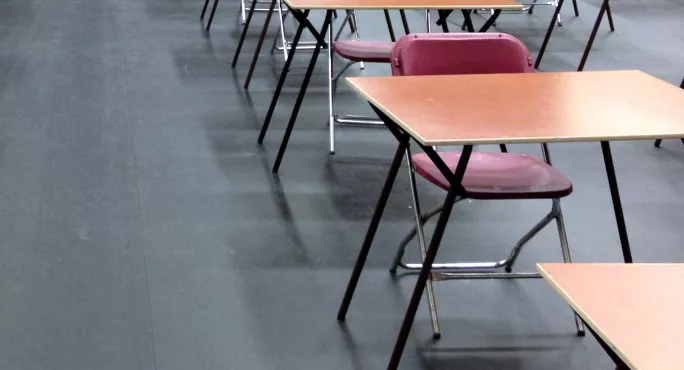In November, thousands of students had maths and English GCSE resits across England. But when will their results come out? And how many students will have to take their exams again? Here's everything you need to know.
Background: GCSE resits: DfE updates English and maths policy
Opinion: 'Focus on success, not failure'
More: Do I have to resit GCSE English and maths?
When will GCSE resit results be published?
On 16 January 2020, students will receive their results for the November sitting.
What are the grade boundaries for GCSE resits?
If you want to find out what the grade boundaries were – and see how they compare to June 2019's exams – you'll need to visit the awarding bodies' websites.
AQA's grade boundaries will be available here.
Edexcel's grade boundaries will be available here.
OCR's grade boundaries will be available here.
WJEC's grade boundaries will be available here.
CCEA's grade boundaries will be available here.
Will I need to sit my GCSEs again?
Candidates who did not manage to achieve at least a grade 4 in GCSE English or maths at school are required to work towards taking the qualifications at a college or sixth form until they achieve that grade, under the condition of funding rules. Those with a grade 2 or below in GCSE maths and/or English at school will have to continue to study the subjects at college, but they can take either a GCSE or an approved stepping-stone qualification. If you have a grade 3, however, you are required to retake the GCSE.
Where can I find the national results?
When it comes to statistics on national pass rates, the November results are released differently to the summer ones. In the summer, the Joint Council for Qualifications (JCQ) publishes the overall national figures on its website. For the November sitting, however, each exam board publishes its own statistics separately.
AQA's statistics will be available here.
Edexcel's statistics will be available here.
OCR's statistics will be available here.
WJEC's statistics will be available here.
CCEA's statistics will be available here.
How did students do last year?
In November 2018, there were more than 92,000 entries in English and maths across the AQA (49,059), Edexcel (39,257) and OCR (3,951) exam boards. The results broadly showed that the pass rate had dropped from 2017.
The proportion achieving a grade 4 or higher in English language in November 2018 with AQA was 32.8 per cent (compared with 33.5 per cent a year earlier), with Edexcel it was 34.1 per cent (33.2 per cent a year earlier) and with OCR it was 41 per cent (49.9 per cent in November 2017). In maths, the proportion of students achieving a grade 4 or higher in November 2018 with AQA was 27.7 per cent (compared with 32 per cent in November 2017), with Edexcel it was 27.6 per cent (30.4 per cent) and with OCR it was 25.2 per cent (26.6 per cent).
In June 2018, 148,986 learners aged 17-plus sat GCSE English language, with 33.1 per cent achieving a grade 4 or higher. For maths GCSE, there were 161,139 learners taking the exam, with 22.7 per cent achieving a grade 4 or higher.
When can I resit my exams?
Here are the exam boards' full GCSE timetables for summer 2020.





